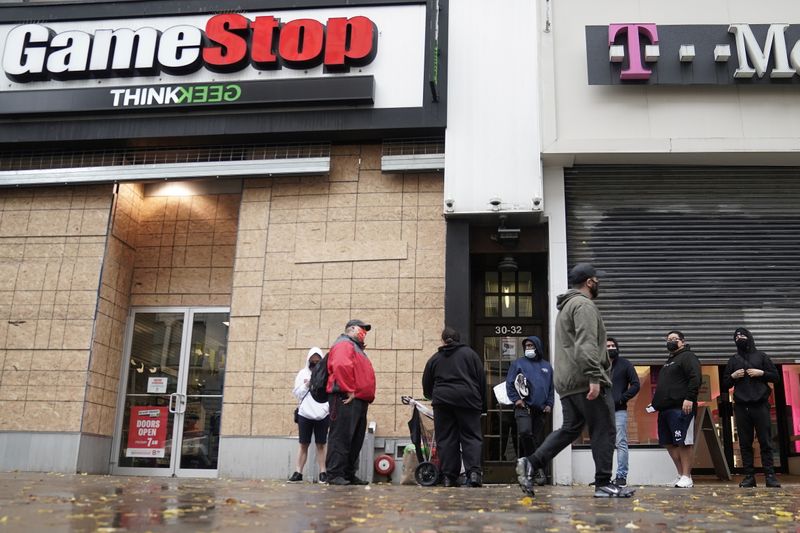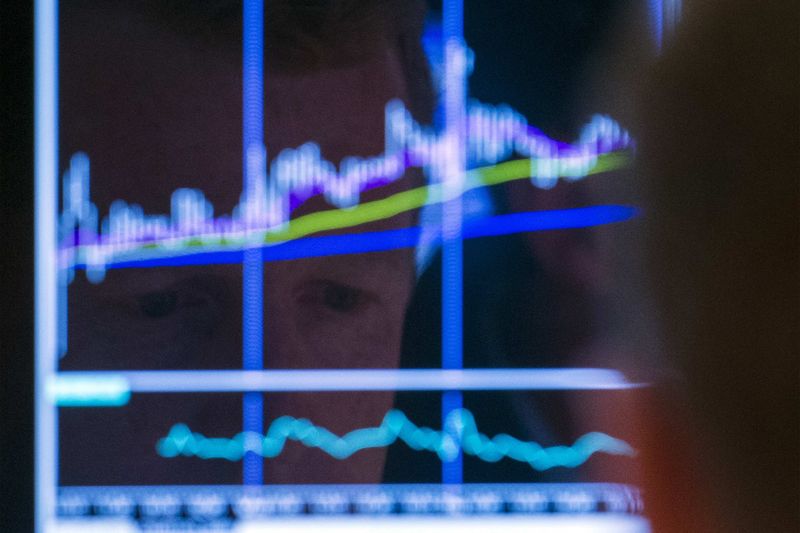By Anna Irrera and Tom Westbrook
LONDON/SINGAPORE (Reuters) - Online broker Robinhood has been one of the hottest venues in this week's retail-trading frenzy but its sudden curbs on buying of some hot stocks have raised the ire of customers, celebrities and politicians who argue it unfairly benefits bigger investors.
The firm has also tapped a credit line so that it has funds to ensure trading continuity when it lifts the rules.
Robinhood Chief Executive Vlad Tenev said on Thursday trade was restricted in "about 13" viral stocks, which include GameStop (NYSE:GME), AMC Entertainment and American Airlines (NASDAQ:AAL), to protect the company and its customers from volatility.
Those stocks slid on Thursday, paring losses only after Robinhood said it hoped to lift the curbs on Friday.
Tenev said on CNBC the brokerage had tapped credit lines "so that we could maximise, within reason, the funds we have to deposit at the clearing houses," to facilitate more trade.
"We understand our customers are upset, we're doing what we can to re-enable buying in these names," he said. "We want to be clear in the communications, and I own that we should have been out there a little bit sooner."
While other firms such as Interactive Brokers also restricted trading, Robinhood's fee-free and simple-to-use app has made it popular with a new generation of small-time traders and its restrictions drew the heaviest backlash.
"Robinhood? Nah y'all ROBBING the HOOD," tweeted one user. "Crazy how you guys would rather watch your company burn to the ground than live up to your promise to provide users with free trade," commented another.
Twitter users also complained that Robinhood appeared to be selling their shares without authorization. Robinhood did not immediately comment on whether it had restricted sales, however Tenev said customers were allowed to sell, but not buy.
Two customers sued Robinhood Financial, seeking damages trading halts in a series of stocks.
Bloomberg reported the broker has tapped at least several hundred million dollars from its lenders, including JP Morgan and Goldman Sachs (NYSE:GS), though Tenev did not discuss the size of Robinhood's borrowing on CNBC.
Meanwhile, anger has spread beyond the investment community with rappers and U.S. politicians on both sides of the aisle joining the backlash.
"This is unacceptable," tweeted Representative Alexandria Ocasio-Cortez, a Democrat.
"We now need to know more about @RobinhoodApp's decision to block retail investors from purchasing stock while hedge funds are freely able to trade the stock as they see fit."
Her tweet was shared by Republican Senator Ted Cruz who commented "fully agree." Tesla founder Elon Musk, whose shares have also been a retail favorite, also commented on Ocasio-Cortez's tweet saying "Absolutely".
Robinhood did not respond to requests for comment.
Celebrities also chimed in. "Yo this is a fucking CRIME what @RobinhoodApp is doing DO NOT SELL!!!", tweeted rapper Ja Rule.
Founded in 2013 with the mission of "democratizing finance for all" by offering commission-free trading, Thursday's move was seen by many as hypocritical. Many users shared a tweet from 2016 in which the company said "Let the people trade."
"This was always a potential issue with Robinhood," said Ian Kar, co-founder and chief executive of research provider Fintech Today. "When are you responsible for helping your users make good financial decisions, versus allowing them to trade freely?"
Robinhood has seen business boom during the coronavirus pandemic as more homebound consumers took to buying and selling stocks online. The app now counts more than 13 million users.

While its engaging service has made it appealing to millions of customers, it has also drawn the scrutiny of critics and regulators who are concerned the company may be encouraging risky behavior in retail investors.
